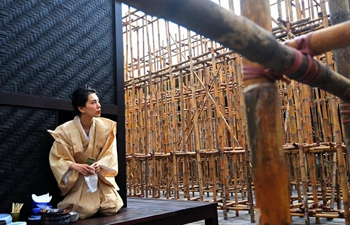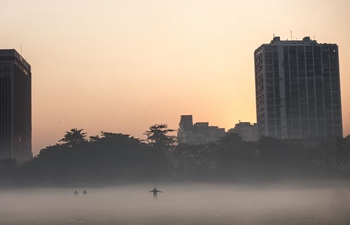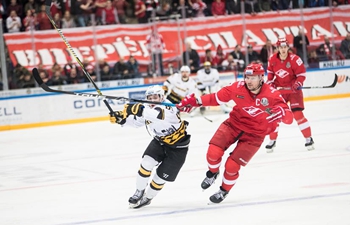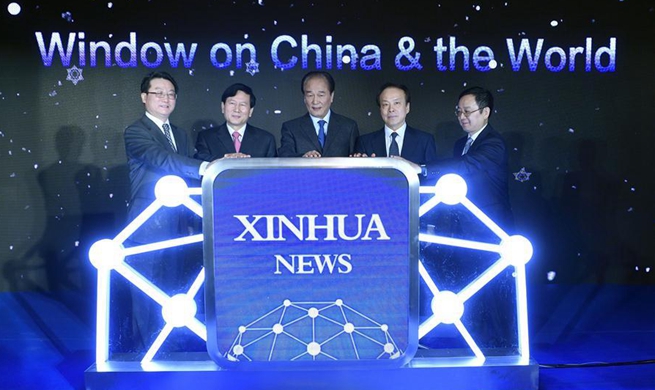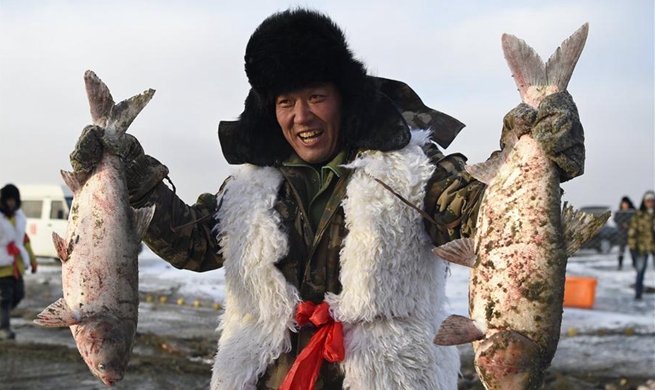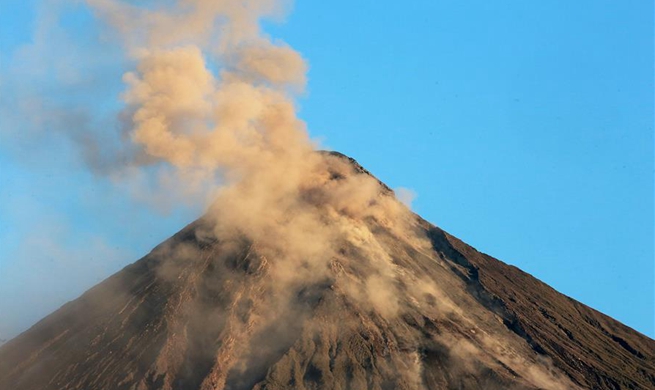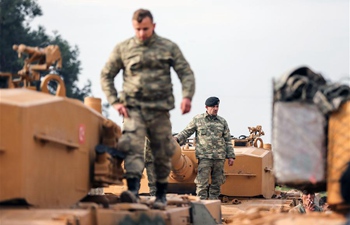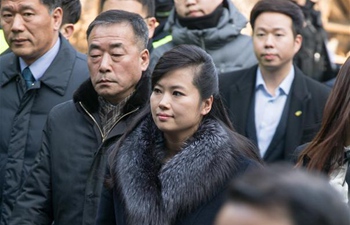MONTREAL, Jan. 23 (Xinhua) -- The sixth round of North American Free Trade Agreement (NAFTA) renegotiation kicked off in Montreal Tuesday with worries of uncertainty of the outcome.
Coinciding with the start of the World Economic Forum in Davos, Switzerland, Canadians have raised concerns about a U.S. withdrawal from the treaty which was signed by Canada, Mexico and the U.S. and went into force on Jan. 1, 1994.
There is both speculation that U.S. President Donald Trump could use these talks to announce his government's triggering of the six-month withdrawal clause in NAFTA or that given his suggestion that the negotiations could extend past the July 1 election in Mexico that talks could continue to limp on for some time yet.
Canadian Foreign Affairs Minister Chrystia Freeland said Canada was "ready for anything" as the sixth and penultimate round of NAFTA.
In an interview Sunday on CTV's Question Period, Freeland said Canadian negotiators aren't taking President Trump's repeated warnings that he may pull his country out of the wide-ranging free trade pact as idle threats.
"I think that it is only sensible and prudent for us to take the president at his word," she said. "We are absolutely prepared for every eventuality. That is a whole of government preparation, a whole of country preparation. So we're ready for anything."
Some contentious issues remain on the table, including the American push to secure a larger share of the parts that go into each vehicle produced on the continent. While key sticking points still loom over the talks, Freeland said there's no reason the sixth round can't yield progress.
"We also approach these negotiations, including the upcoming round in Montreal, with a spirit of good will and positive intent, and we are going to be working hard to get to a positive result. We think that is absolutely possible," she said. "And we think that is the best outcome, not only for Canadians, but for Americans and Mexicans."
Freeland said Canada can only concern itself with getting its own house in order, and that the U.S. will ultimately make its own decision in terms of its view of the future of NAFTA.
"When it comes to what the U.S. may or may not do, our approach is to hope for the best and prepare for the worst," she added.
However, Freeland also said Canada will put forward "creative" proposals at the Montreal talks. It's not clear what Freeland will propose in terms of the controversial Chapter 11 investor-state dispute settlement provision.





